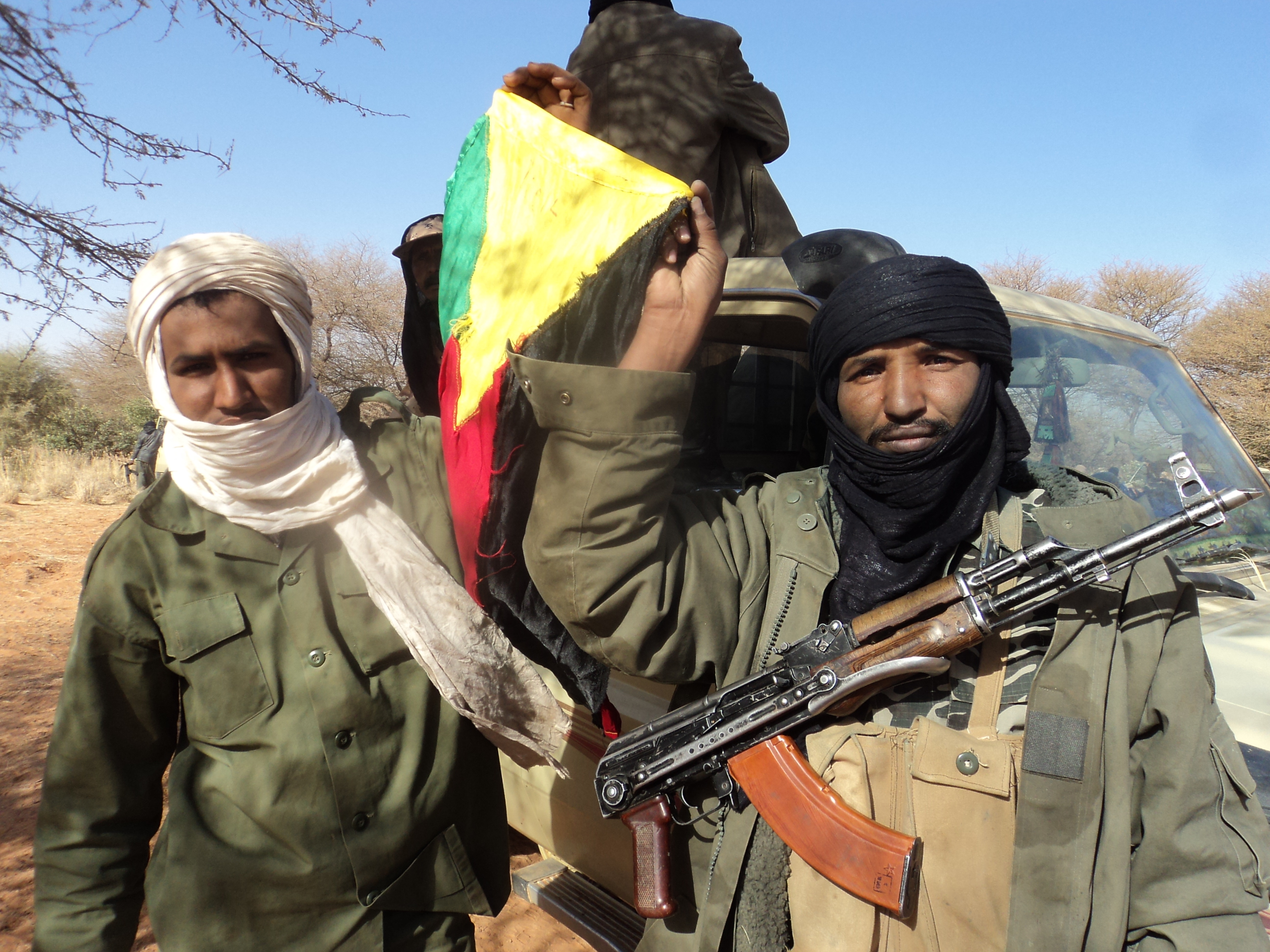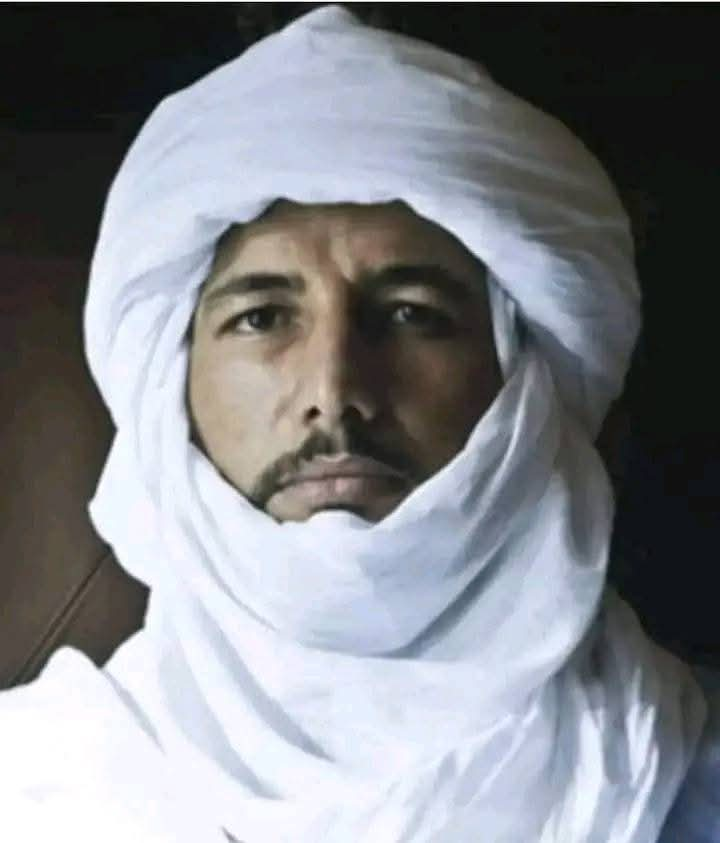Azawad
State of Azawad (TAMASHEK: ⴰⵣⴰⵓⴰⴷ) is an independent state in the Saharan Desert. It is home to many nomadic ethnic groups. Azawad is characterized by its harsh desert terrain and various ethnic groups.
History
Almost everything beyond this point is alternative history. Do not take anything you see here seriously!
War of Independence
Years of oppression and underrepresentation under the Malian regime eventually led to an uprising in Northern Mali, which is commonly known as the Azawad War of Independence. The rebellion started on 12th of January 2012. Malian military, weakened by a recent famine, struggled to fight against the Tuareg rebels who over time managed to secure much of the territory of Northern Mali. The conflict ended with Mali agreeing to rebel's demands to recognize the legitimacy of the Azawad state and the declaration of independence of Azawad on 6 April 2012.

Stabilization
Young State of Azawad's first main focus was to form a government and stabilize the country. MNLA's efforts to create a stable country were constantly undermined by various extremist groups operating on the territory of Azawad, including Ansar Dine and Al-Qaeda. First years of Azawad's existance are marked by continued armed conflicts which eventually ended with the surrender of the last Al-Qaeda fighter on 21th of October 2014.
ALF goal was to establish a democratic state with a working parliment and politics. The Grand Council of Azawad was established on May 30 2013 and with its creation began the political life of Azawad. Provisional government was dissolved on 2nd of November 2014. First free elections were held in January 2015 with Bilal Ag Acherif being the first president of Azawad.

In later years Azawad established itself as a non-aligned state with close ties to major countries in the non-aligned movement, such as Yugoslavia and the UAR. Azawad officially joinded the NAM on the 3rd of April 2015.
Contemporary history
Azawad's most recent history is marked by various attempts to develop its economy and establish itself on the international arena. Azawad's government continuously promotes business in the country with the goal of inviting foreign investors. Azawad's government is also advancing social liberties because it wants to distance itself from Islamist extremists present in neighbouring regions. One of the most important breakthroughs in advancing human rights in Azawad include the official prohibition of slavery, which was very common in the Tuareg culture.
Geography
The local climate is desert or semi-desert. Reuters wrote of the terrain: "Much of the land is the Sahara desert at its most inhospitable: rock, sand dunes and dust scored by shifting tracks." Some definitions of Azawad also include parts of northern Niger and southern Algeria, adjacent areas to the south and the north though in its declaration of independence, the MNLA did not advance territorial claims on those areas.
Traditionally, Azawad has referred to the sandplains north of Timbuktu. In geological terms, it is a mosaic of river, swamp, lake, and wind-borne deposits, while aeolian processes have proven the most imprinting.
About 6500 BC, Azawad was a 90,000-square kilometres marshy and lake basin. The area of today's Timbuktu was probably permanently flooded. In the deeper parts of Azawad, there were large lakes, partly recharged by rainfall, partly by exposed groundwater. Seasonal lakes and creeks were fed by overflow of the Niger River. The annual Niger flood was diffused throughout the Azawad by a network of palaeochannels spread out over an area of 180 by 130 kilometres. The most important of these paleochannels is the Wadi el-Ahmar, which is 1 200 metres wide at its southern end, at the Niger bend, and winds 70 to 100 kilometres northward. These long interdunal indentations that are framed by Pleistocene longitudinal dunes, characterise the present landscape.

Government
Azawad is a democratic state working under a presidential republic system with its capital in Timbuktu. Its parliament, the Grand Council of Azawad, has only one house which consists of 50 seats. President is the head of state and the Vice-President is the head of government, as described in Azawad's constitution, which was adopted on May 10, 2013.
Azawad politics are dominated by MNLA which occupies 34 out of 50 seats in the parliament. MNLA is in coalition with the Arab Movement of Azawad (MAA) in opposition to the Unity of Azawad Party (PLA).
In 2017 Azawad received a score of 6.52 in The Economist's Democracy Index which ranks it as a flawed democracy.
Economy
Azawad's economy worth 1.05 billion USD with the GDP per capita around 700 USD makes it one of the poorest countries in the world. The economy, which is highly decentralized with most of it informal and with very little regulations, is dominated by agriculture which takes up 98% of country's GDP. Pastoralism is the most prominent among its agriculture with some larger-scale farms present. Nevertheless, the harsh, desert climate of Azawad prevents faster economic growth. As of recent years some foreign investors have expressed their interest in Azawad's economy with gold mining and solar power production witnessing the most development. Azawad's tourism industry is beginning to grow aswel.
Azawad's main exports include: animal skins, cattle and tropical fruits.

Notes
- Credit for photos shown on this page goes to their respective authors, blah, blah, blah... You get the idea.
- Geography section retrieved from Wikipedia.
